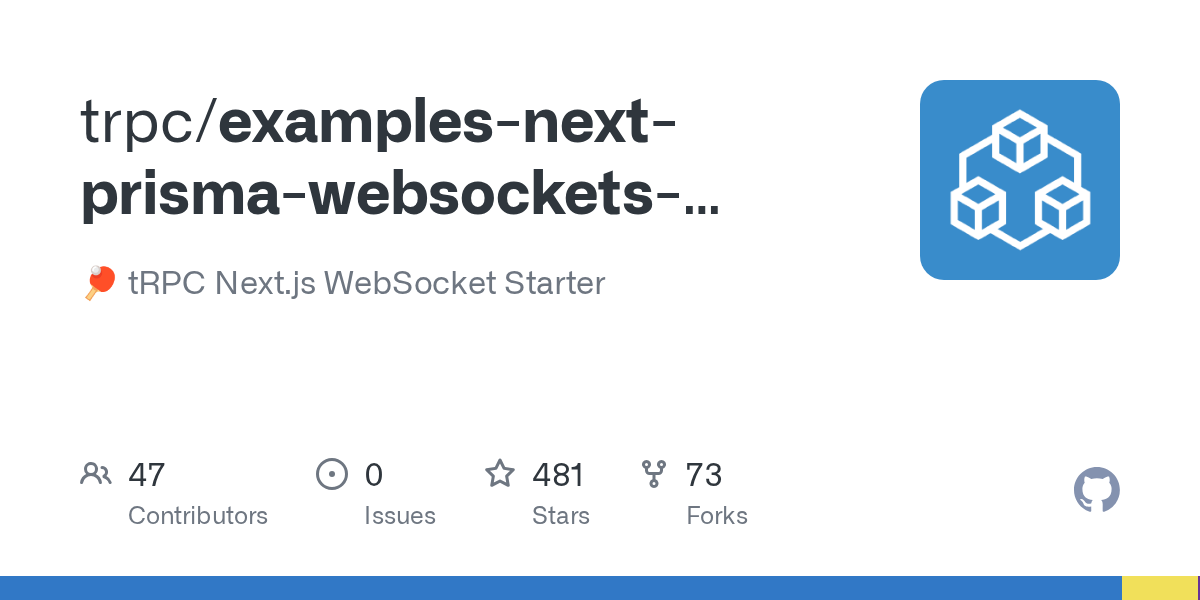next-prisma-websockets-starter explanation
This is the repo I'm trying to copy websocket setup from... https://github.com/trpc/examples-next-prisma-websockets-starter
Inside of the server folder in this template, [https://github.com/trpc/examples-next-prisma-websockets-starter/tree/main/src/server] there is a
Because in the
The tRPC docs also do it differently. They hardcode the websocket urls. And there are no checks for dev and prod.
Inside of the server folder in this template, [https://github.com/trpc/examples-next-prisma-websockets-starter/tree/main/src/server] there is a
prodServer.ts file and a wssDevServer.ts file. How are these files used?? When and how is the prodServer.ts file used(ran) and how is the wssDevServer.ts file ran? Because in the
trpc.tswsLink is used but there are no checks for dev or prod. And WS_URL is imported from publicRuntimeConfig. This is confusing. The tRPC docs also do it differently. They hardcode the websocket urls. And there are no checks for dev and prod.
GitHub tRPC Next.js WebSocket Starter. Contribute to trpc/examples-next-prisma-websockets-starter development by creating an account on GitHub.
tRPC Next.js WebSocket Starter. Contribute to trpc/examples-next-prisma-websockets-starter development by creating an account on GitHub.
 tRPC Next.js WebSocket Starter. Contribute to trpc/examples-next-prisma-websockets-starter development by creating an account on GitHub.
tRPC Next.js WebSocket Starter. Contribute to trpc/examples-next-prisma-websockets-starter development by creating an account on GitHub.
